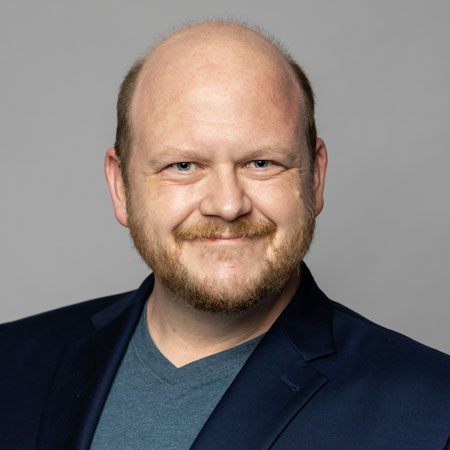News & Announcements
Study finds long-term clerkships benefit patients, providers
April 30, 2024

Although many medical schools adhere to the traditional approach of block rotations for clerkships, a team of researchers with the University of Missouri Center for Health Policy found that longitudinal integrated clerkships (LICs) can greatly benefit students, patients, and preceptors who invest in building relationships.
Mark Benton, an assistant research professor with the Department of Public Health, said the project aimed to pinpoint what LIC participants found meaningful and valuable about their experiences.
Benton and Abigail Olajire, a doctoral student with the MU Department of Communication, worked with the MU School of Medicine’s Rural Scholars Program to connect with clerkship students and preceptors at the Bothwell Regional Health Center in Sedalia, Missouri. The study focused on clerkships in a rural setting because of Benton’s passion for improving rural health disparities.
All medical students take clerkships, but students in LICs work in multiple specialties over the whole clerkship rather than rotating through blocks of individual specialties (i.e., a few weeks in psychology, a few weeks in pediatrics, a few weeks in obstetrics and gynecology). Rather than only seeing patients whose health needs match their particular rotation, students in LICs treat whatever medical needs patients might have; they might see the same patient one month for an OB/GYN visit and a few weeks later for a pediatrics appointment. They also typically work with the same supervisors (also known as preceptors) for the entirety of their clerkships.
“We knew that longitudinal integrated clerkships benefit students because of the strength of relationships students build with preceptors and patients, but it wasn’t as clear why students and preceptors saw them as so valuable to build,” Benton said. “We wanted to understand what it was about the clerkship relationships that made them so strong.”
The research team found that learning in LIC programs is largely dependent on students building relationships with their preceptors and patients. By immersing themselves in a medical setting and building those relationships over time, Benton said, students see patients’ conditions develop over time — and preceptors have a much better idea of each student’s strengths and weaknesses.
“Being on a medical site alone is not what grants LIC students access to medical learning,” he said. “Instead, it is their relationships with their supervisors and patients, and the value they assign to those relationships.”
Beyond uncovering the importance of relationships in LICs, the study also highlighted that the extended nature of these clerkships makes them particularly well-suited for students interested in specializing in pediatrics as well as obstetrics and gynecology. By giving students a more comprehensive perspective of long-term patient needs and medical condition seasonality, Benton said longitudinal clerkships can be quite beneficial for the two specialties.
By designing programs that create outstanding physicians who want to improve health in rural areas, Benton said the hope is to eliminate many of the health care deficits existing today.
“Rural students are underrepresented in medical education,” he said. “There’s a lot of hard work going on to train medical students for rural medical practice and to improve rural health care going on in Missouri — I wanted to be a part of that.”
Featured in this post
